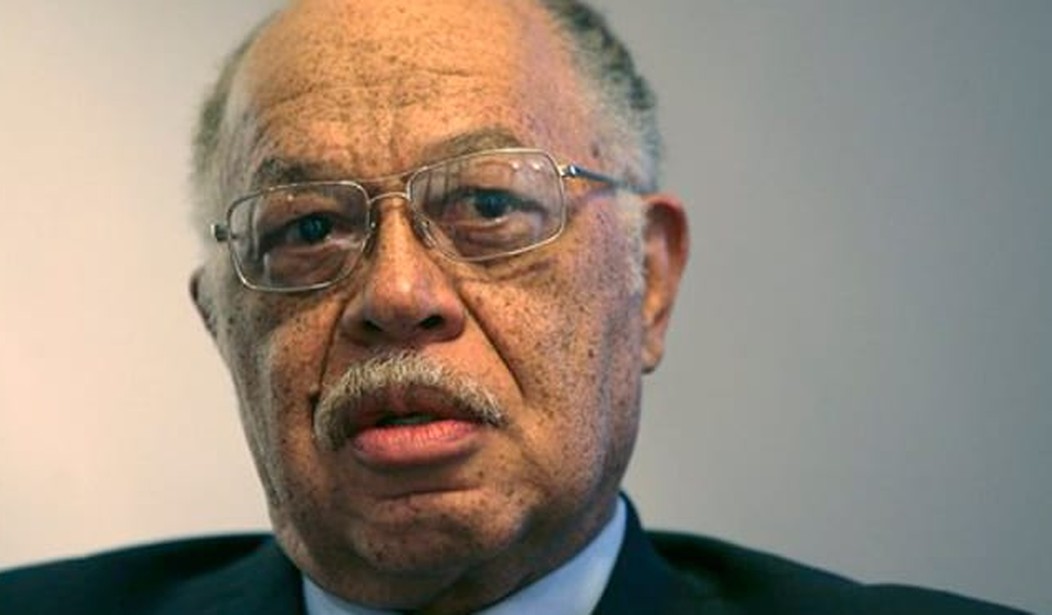WASHINGTON – Abortion may head back to the U.S. Supreme Court after a series of new bans enacted at the state level seek to challenge the landmark decision that made abortion legal in the nation four decades ago.
The issue is also due for new scrutiny on Capitol Hill in the wake of the trial of a Philadelphia abortion doctor and criticism from pro-life groups about the sparse coverage of the proceedings.
Kermit Gosnell was charged with 263 counts, including the death of a female patient and four babies prosecutors said were born alive. He was convicted today of first-degree murder and infanticide in the deaths of three of the babies and acquitted on the fourth charge. He could receive the death penalty on those charges.
He was found guilty of involuntary manslaughter in the death of Karnamaya Mongar, who died from an overdose of sedatives.
Last week, a resolution by Sen. Mike Lee (R-Utah) that said “Congress and States should gather information about and correct abusive, unsanitary, and illegal abortion practices and the interstate referral of women and girls to facilities engaged in dangerous or illegal second- and third-trimester procedures” was blocked from unanimous consent by an unknown senator.
“It is difficult to imagine why anyone would object to a non-binding resolution calling on Congress to investigate these alleged disturbing, horrific, and illegal abortion practices committed by Kermit Gosnell and others,” said Lee.
“With numerous reports of similar instances surfacing around the country, the need for greater regulatory oversight of these so-called clinics is so plainly obvious it strains the limits of disbelief to think all members of the Senate would not agree,” he continued. “The resolution is simply an affirmation that we as a country – a moral and compassionate society – have an interest in acting to save the lives of innocent women and children, and to prevent these kinds of heinous acts from happening to anyone again.”
The next day, Sen. Richard Blumenthal (D-Conn.) gave a floor speech objecting to Lee’s resolution and introduced his own resolution stating that all “incidents of abusive, unsanitary, or illegal health care practices should be condemned and prevented and the perpetrators should be prosecuted to the full extent of the law.”
“I believe this problem is broader than the issue cited in Senator Lee’s resolution. I believe the misconduct alleged in the Gosnell case was abhorrent, but I’m also concerned about patient safety in all instances,” Blumenthal said. “…We ought to talk about the dentist in Oklahoma who exposed as many as 7,000 patients to HIV and Hepatitis B and C with the same outrage as we talk about the abortion doctor in Pennsylvania who is accused of several heinous crimes.”
Gosnell is a Pennsylvania doctor accused of running a clinic where seven babies were allegedly killed after botched abortions, venereal diseases were spread among his patients, and an adult patient was given a fatal dose of Demerol, among other gruesome charges.
The Gosnell trial raises the question of whether it will affect the battle over abortion rights happening in some states. Abortion opponents hope that the horrifying crimes associated with the trial can shift the balance of power in the ongoing debate, which they anticipate will open the door for stronger regulations on the practice of abortion.
“We must keep up the momentum and pass clinic regulations in every state possible,” wrote Marjorie Dannenfelser, president of the pro-life Susan B. Anthony List, in a fundraising email. “We must hammer politicians who oppose clinic regulations and stand up for those who are getting them passed. This is already becoming an issue in some 2013 state races, and we must make it an issue in 2014 Senate races which are starting to heat up.”
In late March, North Dakota Gov. Jack Dalrymple signed into law the most restrictive abortion laws in the country.
One bill bans abortions after the detection of a fetal heartbeat, approximately six weeks into pregnancy. A second bill bans abortions solely for the purpose of gender selection and fetal genetic anomalies. The third bill requires that any physician who performs abortions must have staff privileges at a hospital within 30 miles of the abortion facility. All three laws will take effect August 1.
Dalrymple signed a fourth anti-abortion measure that outlaws abortions after 20 weeks of pregnancy last week.
North Dakota is the latest state in a growing list to pass legislation that restricts the circumstances under which women can exercise their right to have a legal abortion.
Alabama approved a bill recently that would require doctors performing abortions to have admitting privileges at local hospitals. Last month, Arkansas enacted a law – known as the Human Heartbeat Protection Act – that seeks to make abortion illegal after 12 weeks of fetal development.
Legislators in 14 states, including South Carolina, Iowa, and Mississippi, introduced similar provisions in the first three months of this year, according to the New York-based Guttmacher Institute, which tracks abortion legislation.
The North Dakota law is the most concerted effort by a state to directly challenge the high court’s abortion rulings, which said states have the right to regulate the procedure but not ban it outright before a fetus can survive outside of the womb.
The 1973 Roe v. Wade decision legalized abortion in the first trimester of pregnancy, stating that statutes criminalizing abortion in most instances violated a woman’s constitutional right of privacy, which the Supreme Court found implicit in the liberty guarantee of the due process clause of the Fourteenth Amendment.
Since the Supreme Court’s ruling four decades ago, opponents of abortion have gradually chipped away at the high court’s decision.
Currently, no states have bans on most abortions before 20 weeks into pregnancy. Several states have approved bans on most abortions at around 20 weeks, based on debated medical research that a fetus can feel pain at this point. North Dakota, Arkansas, and Arizona – where the law is not in effect due to a legal challenge – are the only states to have banned abortion after 18 weeks.
In the view of many supporters of these earlier bans on abortion, the line should not be when a fetus can survive the outside the wound, but when the heart begins to beat.
North Dakota State Rep. Bette Grande (R) is confident the national publicity surrounding her state’s fetal heartbeat abortion ban will bring new awareness to the issue.
“It does give people the opportunity to realize that there is a beating heart,” even in a fetus as young as six weeks, Grande said. “People are recognizing that.”
Along with the four anti-abortion measures in North Dakota, state lawmakers moved last month to outlaw abortion in the state by passing a “personhood” resolution that defines life as starting at conception, effectively banning abortion. The measure is likely to come before voters in November 2014.
The resolution means a small victory for the personhood movement, which seeks to grant a fetus full legal rights from conception.
“The North Dakota personhood amendment takes the pro-life plank of the GOP platform and puts it into practice. Furthermore, it allows the legislature the needed flexibility to implement the specific protections of the right to life through future legislation,” said Gualberto Garcia, legal analyst for Personhood USA.
A similar proposal has also emerged in Washington.
The week after his 13-hour filibuster put him in the national spotlight, Sen. Rand Paul (R-Ky.) introduced legislation giving an embryo protection under the 14th Amendment.
“The Life at Conception Act legislatively declares what most Americans believe and what science has long known — that human life begins at the moment of conception and, therefore, is entitled to legal protection from that point forward,” Paul said in a statement introducing the bill.
Lawmakers who voted for these state measures know full well they’re likely to be challenged in the Supreme Court.
“Although the likelihood of this measure surviving a court challenge remains in question, this bill is nevertheless a legitimate attempt by a state legislature to discover the boundaries of Roe v. Wade,” Dalrymple said in a statement.
Red River Women’s Clinic, the only clinic offering abortion services in North Dakota, has already vowed to challenge the state’s adoption of the new restrictions.
The clinic plans to file a lawsuit seeking to overturn the “heartbeat” ban and work toward getting doctors admitting privileges if that law stands, said Tammi Kromenaker, the clinic’s director.
Opponents of the ban, such as the Center for Reproductive Rights and Planned Parenthood, say the measures violate the Supreme Court’s rulings. Cecile Richards, the director of Planned Parenthood, told the Washington Post she thinks abortion rights will be heading back to the Supreme Court.
“I assume something will [go to the Supreme Court]. I hope the Supreme Court will honor judicial precedent, that this is a right women and men have had for 40 years and won’t let it [be taken] away,” said Richards.
President Obama became the first sitting president to address Planned Parenthood’s national conference last month. During his address, Obama denounced the recent anti-abortion measures and called them “absurd” and “wrong.”
At the request of Dalrymple, lawmakers in North Dakota have started building a war chest to defend against potential lawsuits. The state Senate has unanimously supported a request by the state attorney general for a $400,000 budget increase.
Sen. Heidi Heitkamp, a North Dakota Democrat and former state attorney general, said the abortion bills were probably not constitutional.
“It’s short-sighted; I think that those people that hope desperately that this will lead to a reversal of Roe v. Wade are misguided,” said Heitkamp. “This is a decision that does not belong in the North Dakota legislature, and [it] is being pushed by a small group of folks who want to pursue an agenda of reversal of Roe v. Wade.”
Heitkamp told Valley News Live recently that she thinks the state will spend a lot of money defending bills that are not consistent with Roe v. Wade when, in fact, her state could be using those resources to help prevent pregnancy and “to help women make a choice to carry a baby to term.”









Join the conversation as a VIP Member